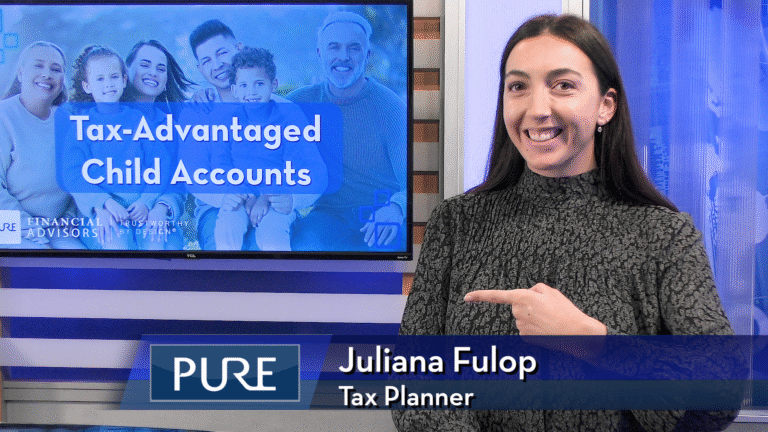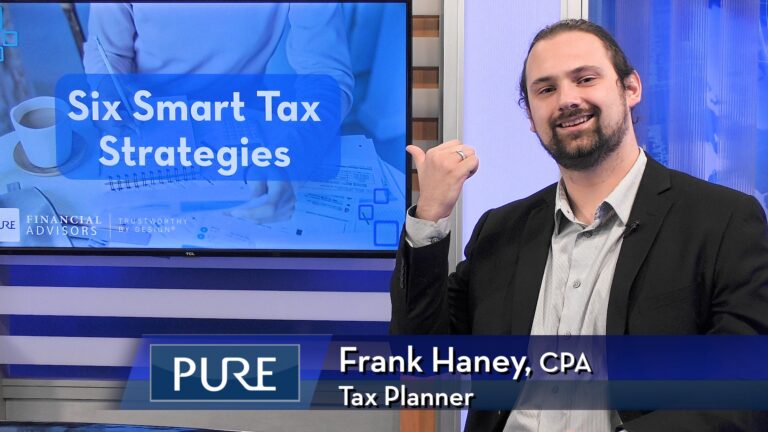Are you considering working during retirement and uncertain about its impact on your Social Security benefits? Pure’s Financial Planner, Ryan Miiller, CFP® , AIF®, explains the details of benefit calculations both before and after reaching full retirement age. Gain a better understanding of how your decisions today can shape your financial future.
FREE GUIDE | Social Security Handbook
Transcript
When you reach your full retirement age, you can work and earn as much as you want and still get your full Social Security benefit. If you’re younger than full retirement age, and if your earnings exceed a certain dollar amount, some of your benefit payments within that one-year period will be withheld. This doesn’t mean you must try to limit your earnings. If the Social Security withholds some of your benefits because you continue to work, they’ll pay you a higher monthly benefit amount when you reach your full retirement age. So, if you work and earn more than the exempt amount, it won’t, on average, decrease the total value of your lifetime Social Security benefits. It’ll actually increase them.
Here is how this works: When you reach full retirement age, they’ll recalculate your benefit to give you credit for months that you didn’t get a benefit and this is because of your earnings. So, in addition, as long as you continue to work and receive benefits, they’ll check your record every year to make sure whether those extra earnings will increase the overall monthly benefit.
So, if you are under full retirement age for the entire year, Social Security will deduct $1 from your benefit payments for every $2 you earn above the annual limit. In 2023, that limit is $21,240. In the year you reach full retirement age, they deduct $1 in benefits for every $3 you earn above a different limit. In 2023, this limit on your earnings is $56,520.
They only count your earnings up to the month before you reach your full retirement age, not your earnings for the entire year. Beginning with the month you reach full retirement age, your earnings no longer reduce your benefits, no matter how much you earn.
The Social Security administration also doesn’t count pensions, annuities, investment income, interest, veterans benefits, or other government or military retirement benefits as earned income in this calculation.
So, if you need guidance in this or have other retirement planning questions, please take advantage of Pure’s free financial assessment, and get those questions answered.
Subscribe to our YouTube channel.
IMPORTANT DISCLOSURES:
• Investment Advisory and Financial Planning Services are offered through Pure Financial Advisors, LLC, a Registered Investment Advisor.
• Pure Financial Advisors LLC does not offer tax or legal advice. Consult with your tax advisor or attorney regarding specific situations.
• Opinions expressed are subject to change without notice and are not intended as investment advice or to predict future performance.
• Investing involves risk including the potential loss of principal. No investment strategy can guarantee a profit or protect against loss in periods of declining values.
• All information is believed to be from reliable sources; however, we make no representation as to its completeness or accuracy.
• Intended for educational purposes only and are not intended as individualized advice or a guarantee that you will achieve a desired result. Before implementing any strategies discussed you should consult your tax and financial advisors.
• Pure Financial Advisors, LLC, is not affiliated with any government agency, including, but not limited to the Social Security Administration.
CFP® – The CERTIFIED FINANCIAL PLANNER™ certification is by the Certified Financial Planner Board of Standards, Inc. To attain the right to use the CFP® designation, an individual must satisfactorily fulfill education, experience and ethics requirements as well as pass a comprehensive exam. Thirty hours of continuing education is required every two years to maintain the designation.
AIF® – Accredited Investment Fiduciary designation is administered by the Center for Fiduciary Studies fi360. To receive the AIF Designation, an individual must meet prerequisite criteria, complete a training program, and pass a comprehensive examination. Six hours of continuing education is required annually to maintain the designation.












